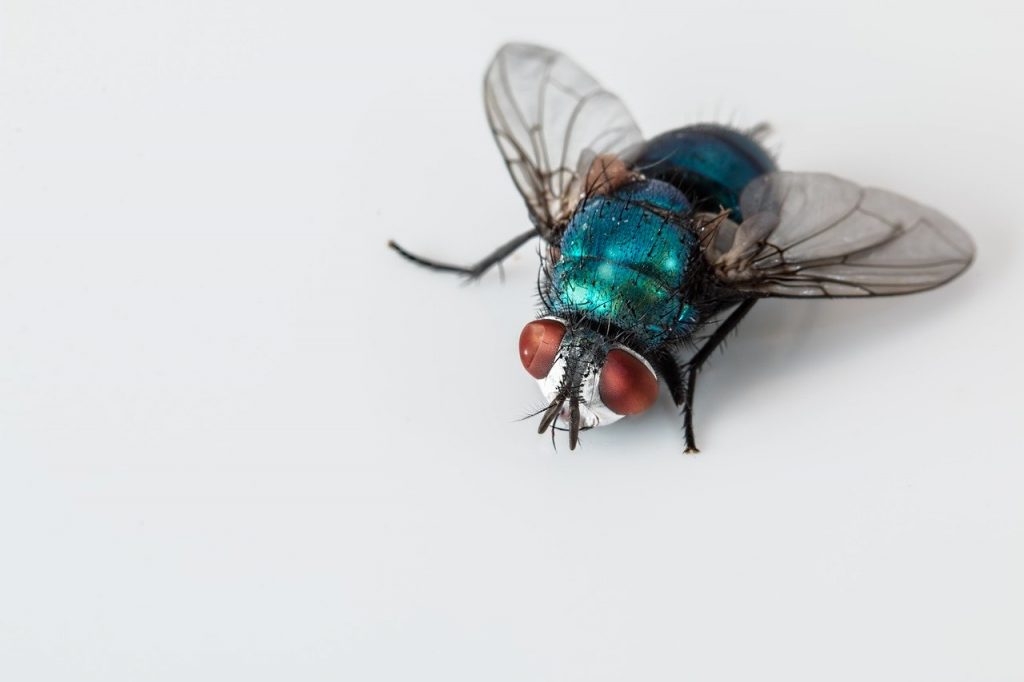Call them what you will, bugs, insects, pests, or creepy crawlies. They seem to find their way everywhere. Most homes will host a collection of various bugs without us even realizing they are there.
Perhaps we notice the odd spider’s web in the corner of a room, or the occasional fly, which gets swatted away from a food plate.
However, there are certain periods of the year that seem to attract a higher number of bugs and insects than we would like. A kitchen is a favorite place, and depending on where we live, the UK, Europe, Australia, or the US, it can act as a magnet for various species of insects and pests.
What Are The Most Common Kitchen Bugs?

To a large degree, the most common kitchen bugs and the frequency you find them in your kitchen will often depend on a country’s average temperature. Hotter countries may suffer bug infestations far more frequently than cooler countries, and there are various reasons for this.
Kitchens provide the three main requirements for happy bugs; moisture, food, and warmth. However, the following are the most likely to cause concern, no matter where you live.
Ants
Wherever you are, ants can become a problem. The dark brown or black garden ant is the most likely to enter your kitchen, searching for a food or moisture source during the warmer months of the year. Most of us are used to the swarms of ‘flying ants,’ which take to the skies through July or August. They are, in fact, male and female garden ants, which mate on the wing.
The females then look for a nest site to lay their eggs, which begin hatching as the weather warms up, prompting worker ants to look farther afield for food to feed the new nest.
Less likely invaders could be Pharaoh Ants or Ghost Ants, originating from hotter climates. While garden ants and Pharaoh Ant nests can be destroyed using a liquid or gel insecticide, a professional pest controller is recommended if Ghost Ants invade you. You may also come up against odorous house ants, pavement ants, Argentine ants, and even Fire ants in the United States.
Cockroaches
Of all the creepy crawlies we might find wandering around the kitchen, the cockroach is the most hated, especially in commercial kitchens. Not because they bite or sting but because of their size and the fact they can contaminate anything they come into contact with, such as worktop surfaces, utensils, and uncovered foodstuffs.
In the UK, the German cockroach and the larger Oriental cockroach need the warmth of occupied buildings to survive. In the warm Mediterranean climes of southern Europe, the Islands, and warmer US and the Australian States, they can survive year-round outside and are far more prevalent.
There are several over-the-counter insecticides for cockroaches. But, if you believe you have an infestation, commercial pest controllers are probably the better option.
The Common House Fly
Flies are one of the most common kitchen insects we must deal with.
If there is a truly universal insect, it is probably the fly. However, as temperatures begin to rise, so too does the activity of the house fly, fruit flies, and green and blue bottle flies.
For such a little insect, the fly has a great sense of smell. With kitchen windows and doors open during the summer months and those tantalizing smells of kitchen waste and resting meats wafting a mile or more, our little friends are soon in fly heaven, flitting around the kitchen.
An effective kitchen hygiene routine is the best way to minimize summertime fly activity wherever you live. Keep your household waste bin away from the house. Empty and spray your kitchen bin regularly. Don’t leave unwashed plates in the kitchen sink, and don’t leave uncooked or prepared food on kitchen worktops.
Fly sprays, sticky flypapers, and ultra-violet zappers are effective against flies.
Pantry Bugs
Unless you live in an older property and store your cereals, flour, biscuits, and pet foods in paper or sacking bags, you are unlikely to come across pantry bugs.
These bugs can be moths or beetles, and given time, they will chew their way into your foodstuffs, often living and laying their eggs in the bags as they munch their way through your muesli or oats. Nonetheless, removing everything from your food pantry and checking the produce regularly is the best way to minimize the risk of an infestation.
If you do find any sign of possible entry into a bag, dispose of the whole bag of grain, flour, or cereal.
House Mice and Other Rodents
Although called the house mouse, they are perfectly happy living outdoors until the temperature begins to drop. Then they start looking for ways to enjoy the comforts of your centrally heated home. Mice can squeeze through the smallest gaps in brickwork, waste pipes, or under external doors.
While you might not see them, they leave plenty of markers. Droppings on worktops, cupboards, and small piles of chewed-up fabric and paper as they search for food or nest building. Old-style mousetraps are still available, as are poisons, although many today choose to use humane traps.
Make sure any traps or poison put down are out of the reach of children and pets.
Mice are definitely one of the most common kitchen pests!
Frequently Asked Questions

What are the most common food pests?
Ants and flies are the 2 most common food pests. When the weather is hot, you can leave a plate of food outside or in your kitchen, and by the morning, the plate will have been found by an Ant! If you leave a window or door open, the plate will also be visited by a fly, guaranteed. Flies also come with the danger of laying eggs around any food that has been left out. Another great reason to clean up any leftover food. You don’t want to wake up to some maggots on your kitchen floor!
What are pests attracted to?
Pests are primarily attracted to food, but they will also be attracted to areas of your home that offer warmth, dryness, and protection from predators.
Does a messy room attract bugs?
Yes – mainly if part of that mess includes food substances. Bugs will go after food quickly! So always ensure that you tidy up your food and do not leave a room in a messy state.
Conclusion
An effective hygiene and cleaning regime is the best way to minimize a serious outbreak of bug infestation in your kitchen. Period!
Nature put all these little bugs and creepy crawlies on the earth to do a specific job.
Doing your part will keep them working where they are supposed to work, in the gardens, parks, and forests, wherever you live!
Good luck!

